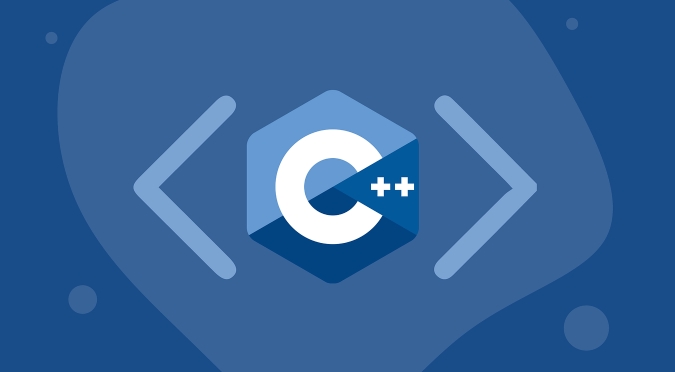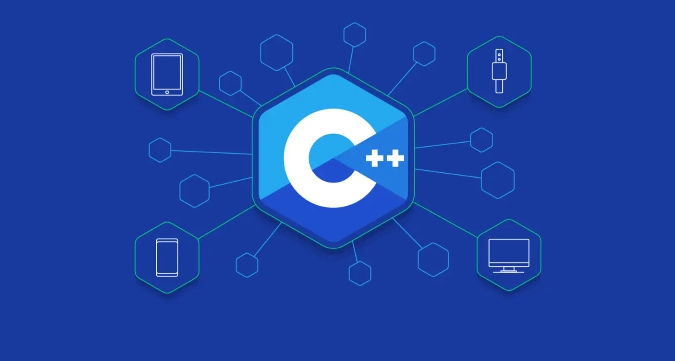To declare a variable in C, you need to specify the data type followed by the variable name and optionally assign the value. The basic syntax is data_type variable_name = value;, such as int age; double price; char grade;. Common data types include int (int), double/float (decimal), char (char), bool (boolean) and string (string). Variable naming must start with letters or underscores, do not contain spaces or special characters, and are case-sensitive, and avoid using reserved keywords. It is recommended to use camel nomenclature, such as studentAge and fullName. Multiple variables of the same type can be declared on a line, separated by commas, such as int x, y, z; or int a = 1, b = 2;.

In C , declaring a variable is straightforward but follows specific syntax rules. You need to specify the data type followed by the variable name, and optionally assign an initial value.

Basic Syntax for Declaring Variables
The general format is:

data_type variable_name = value;
You don't always have to assign a value right away — you can just declare it like this:
int age; double price; char grade;
Each of these lines creates a variable that can hold a certain kind of data: whole numbers, decimal numbers, or characters.

Common Data Types You'll Use
Here are some basic types you'll often see when declaring variables:
-
int– for integers (eg, 5, -10) -
doubleorfloat– for decimal numbers (eg, 3.14, 2.5) -
char– for single characters (eg, 'a', '$') -
bool– for true/false values -
string– for text (requires including<string>)
For example:
int score = 100; double temperature = 98.6; char letter = 'A'; bool isPassed = true;
These declarations are the building blocks for storing and manipulating data in your programs.
Rules for Naming Variables
When naming variables, there are a few rules and best practices to follow:
- Names must start with a letter or underscore (
_) - No spaces or special characters allowed
- Case-sensitive (
ageandAgeare different) - Avoid using reserved keywords like
int,return, etc.
Some good naming examples include:
int studentAge; double averageScore; string fullName;
It's also common to use camelCase style for multi-word variable names in C .
How to Declare Multiple Variables in One Line
You can declare multiple variables of the same type on one line by separating them with commas:
int x, y, z;
You can even initialize some or all of them at the same time:
int a = 1, b = 2, c = 3; double height = 5.5, weight = 60.2;
This helps keep your code concise, especially when working with related variables.
That's how you do it — pretty much every C program starts with simple variable declarations like these.
The above is the detailed content of How to declare a variable in C ?. For more information, please follow other related articles on the PHP Chinese website!

Hot AI Tools

Undress AI Tool
Undress images for free

Undresser.AI Undress
AI-powered app for creating realistic nude photos

AI Clothes Remover
Online AI tool for removing clothes from photos.

Clothoff.io
AI clothes remover

Video Face Swap
Swap faces in any video effortlessly with our completely free AI face swap tool!

Hot Article

Hot Tools

Notepad++7.3.1
Easy-to-use and free code editor

SublimeText3 Chinese version
Chinese version, very easy to use

Zend Studio 13.0.1
Powerful PHP integrated development environment

Dreamweaver CS6
Visual web development tools

SublimeText3 Mac version
God-level code editing software (SublimeText3)

Hot Topics
 The difference between programming in Java and other languages ??Analysis of the advantages of cross-platform features of Java
May 20, 2025 pm 08:21 PM
The difference between programming in Java and other languages ??Analysis of the advantages of cross-platform features of Java
May 20, 2025 pm 08:21 PM
The main difference between Java and other programming languages ??is its cross-platform feature of "writing at once, running everywhere". 1. The syntax of Java is close to C, but it removes pointer operations that are prone to errors, making it suitable for large enterprise applications. 2. Compared with Python, Java has more advantages in performance and large-scale data processing. The cross-platform advantage of Java stems from the Java virtual machine (JVM), which can run the same bytecode on different platforms, simplifying development and deployment, but be careful to avoid using platform-specific APIs to maintain cross-platformity.
 How to reduce the use of global variables in C?
May 23, 2025 pm 09:03 PM
How to reduce the use of global variables in C?
May 23, 2025 pm 09:03 PM
Reducing the use of global variables in C can be achieved by: 1. Using encapsulation and singleton patterns to hide data and limit instances; 2. Using dependency injection to pass dependencies; 3. Using local static variables to replace global shared data; 4. Reduce the dependence of global variables through namespace and modular organization of code.
 c: What does it mean? Data bit c Median domain definition colon usage
May 23, 2025 pm 08:48 PM
c: What does it mean? Data bit c Median domain definition colon usage
May 23, 2025 pm 08:48 PM
In C, the bit field is a structure member that specifies the number of bits, used to save memory and directly manipulate hardware. Example: structMyStruct{inta:2;intb:5;intc:1;}. The advantage of bit domains is memory savings, but there are cross-platform issues, access restrictions and assignments that require caution. Example of usage: structStateMachine{unsignedintpower:1;unsignedintmode:2;unsignedinterror:1;}. Performance recommendations include arranging bit fields by size, avoiding overuse and adequate testing.
 Usage of ? in c Analysis of three-item operator instance in c
May 23, 2025 pm 09:09 PM
Usage of ? in c Analysis of three-item operator instance in c
May 23, 2025 pm 09:09 PM
The syntax of the trigonometric operator in C is condition?expression1:expression2, which is used to select and execute different expressions according to the condition. 1) Basic usage example: intmax=(x>y)?x:y, used to select the larger value in x and y. 2) Example of nested usage: intresult=(a>0&&b>0)?a b:(a==0||b==0)?a*b:a-b, used to perform different operations according to different conditions. 3) Error handling example: std::stringerrorMessage=(errorCode==0)?"Successful&quo
 Usage of c Typical application scenarios of logical non-operators
May 23, 2025 pm 08:42 PM
Usage of c Typical application scenarios of logical non-operators
May 23, 2025 pm 08:42 PM
The usage of logical non-operator! in C includes: 1) Basic usage: inverse the Boolean value; 2) Conditional judgment: simplify the code, such as checking whether the container is empty; 3) Loop control: processing elements that do not meet the conditions; 4) Function return value processing: determine whether the operation has failed. Pay attention to potential pitfalls such as pointer processing and operator priority when using!, but it can help write more concise and efficient code.
 What is the use of python multi-domain application
May 21, 2025 pm 09:51 PM
What is the use of python multi-domain application
May 21, 2025 pm 09:51 PM
Python is widely used in data science, web development, automation, finance, scientific computing and other fields. 1) Data Science: Use NumPy, Pandas, TensorFlow and other libraries to process data and build models. 2) Web development: Django and Flask frameworks quickly build websites. 3) Automation: Write scripts to automate tasks. 4) Finance: Quantopian and Zipline are used for quantitative transactions. 5) Scientific Computing: SciPy and Matplotlib are used for data analysis and visualization. Python's simplicity and readability make it ideal for multiple fields.
 How to implement the logging system in C?
May 23, 2025 pm 09:18 PM
How to implement the logging system in C?
May 23, 2025 pm 09:18 PM
Implementing an efficient and flexible logging system in C can use the following steps: 1. Define log classes and process log information at different levels; 2. Use policy mode to achieve multi-objective output; 3. Ensure thread safety through mutex locks; 4. Use lock-free queues for performance optimization. This can build a log system that meets the needs of actual application.
 C : Is Polymorphism really useful?
Jun 20, 2025 am 12:01 AM
C : Is Polymorphism really useful?
Jun 20, 2025 am 12:01 AM
Yes, polymorphisms in C are very useful. 1) It provides flexibility to allow easy addition of new types; 2) promotes code reuse and reduces duplication; 3) simplifies maintenance, making the code easier to expand and adapt to changes. Despite performance and memory management challenges, its advantages are particularly significant in complex systems.






